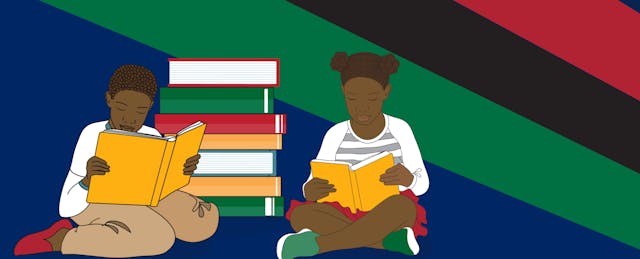The past couple of weeks have been a serious wakeup call on a nationwide scale as well as in my own heart. While I’ve always considered myself an ally for my black students and others who have been marginalized, I’ve taken this moment to more closely examine what that means, and I know I’ve come up short.
I’m saddened by that, and I’m learning to sit with the tough emotions.
Ultimately, I know something has to change.
Ever since I became a school librarian, I thought I had been inclusive in our offerings, but now that I’ve learned more, I see that until recently, my work in that area was weak.
I had lots of stories with black characters, but upon closer analysis, I discovered that more than half of those were stories with civil rights or the civil war as the backdrop. Black students want the stories everyone else wants—stories about friendship, stories with a little sass, stories with some high adventure, twists and turns or spooky ghosts. And they deserve to see their own experience, their own faces, reflected in those stories.
I have had the good fortune to participate in implicit bias and equity training as part of our district equity team and have learned so much. But that’s just the tip of the proverbial iceberg.
My knee-jerk reaction to what’s going on in the world is to speak up, to try to find common ground with those who experience racism as they simply live their daily lives. But when I start to do so, I’m smacked in the face with this stark reality: I cannot find common ground there. I have never experienced it. My privilege protects me from it.
When that reality hits, I feel like I should go silent. What do I have to offer the conversation? I do not want to misstep, to misspeak, to make things worse.
And that’s when my path forward starts to come into focus.
I don’t need to talk. I need to listen.
I need to consider the stories, ponder the words and let them sink in. I need to read widely, talk at length with others who want to join the ranks of allyship and examine my work through the lens of deep and meaningful inclusivity. Along the way, I need to pause, reflect, and take in what I hear with love and avoid defensiveness.
But I’ll do more than just listen. I will take it upon myself to learn, starting with moving “Stamped: Racism, Antiracism, and You: A Remix of the National Book Award-winning Stamped from the Beginning” by Ibram X. Kendi and Jason Reynolds to the top of my summer reading stack. After that, I want to dig into more works by black authors. I have my favorites, of course—Jason Reynolds, Jacqueline Woodson, Nikki Grimes, Renee Watson, Kwame Alexander and N.K. Jemison come to mind—but I want to explore others.
I want to be able to offer these materials and talk about these authors (with integrity) to my students. If I’ve read them, I can speak to their power when working with my students.
- “Tristan Strong Punches a Hole in the Sky” by Kwame Mbalia. I’ve started this one and it feels like it is the perfect fit for the kind of kid who loves Rick Riordan’s “The Lightning Thief” series.
- “Crown: An Ode to the Fresh Cut” by Derrick Barnes. I’ve read this one before, but I’d love to view it through new eyes.
- “The Book Itch: Freedom, Truth & Harlem's Greatest Bookstore” by Vaunda Micheaux Nelson.
- “The Broken Earth” series by N.K. Jemison. I read the first book (“The Fifth Season,” winner of the 2016 Hugo Award) last summer, and now it’s time to dig in and explore the rest. (Definitely more of an adult-audience sci-fi title, but oh-so-good!)
- And as soon as it’s released, I want to get my hands on a copy of “Antiracist Baby,” a brand new board book by Ibram X. Kendi.
I will continue to be inspired by events such as the KidLit Rally coordinated by Kwame Alexander, Jacqueline Woodson and Jason Reynolds. I’ll fill up my Twitter feed with resources like The Brown Bookshelf and We Need Diverse Books. And perhaps most importantly, I will continue to engage with black students and listen to what they are asking for.
Sometimes that will mean I am uncomfortable. I will learn to pause and sit in that discomfort. I’ll need to take a deep breath and recognize that right now the most important thing isn’t to find a way to make me feel better. The important thing is to do my part in changing the system.


